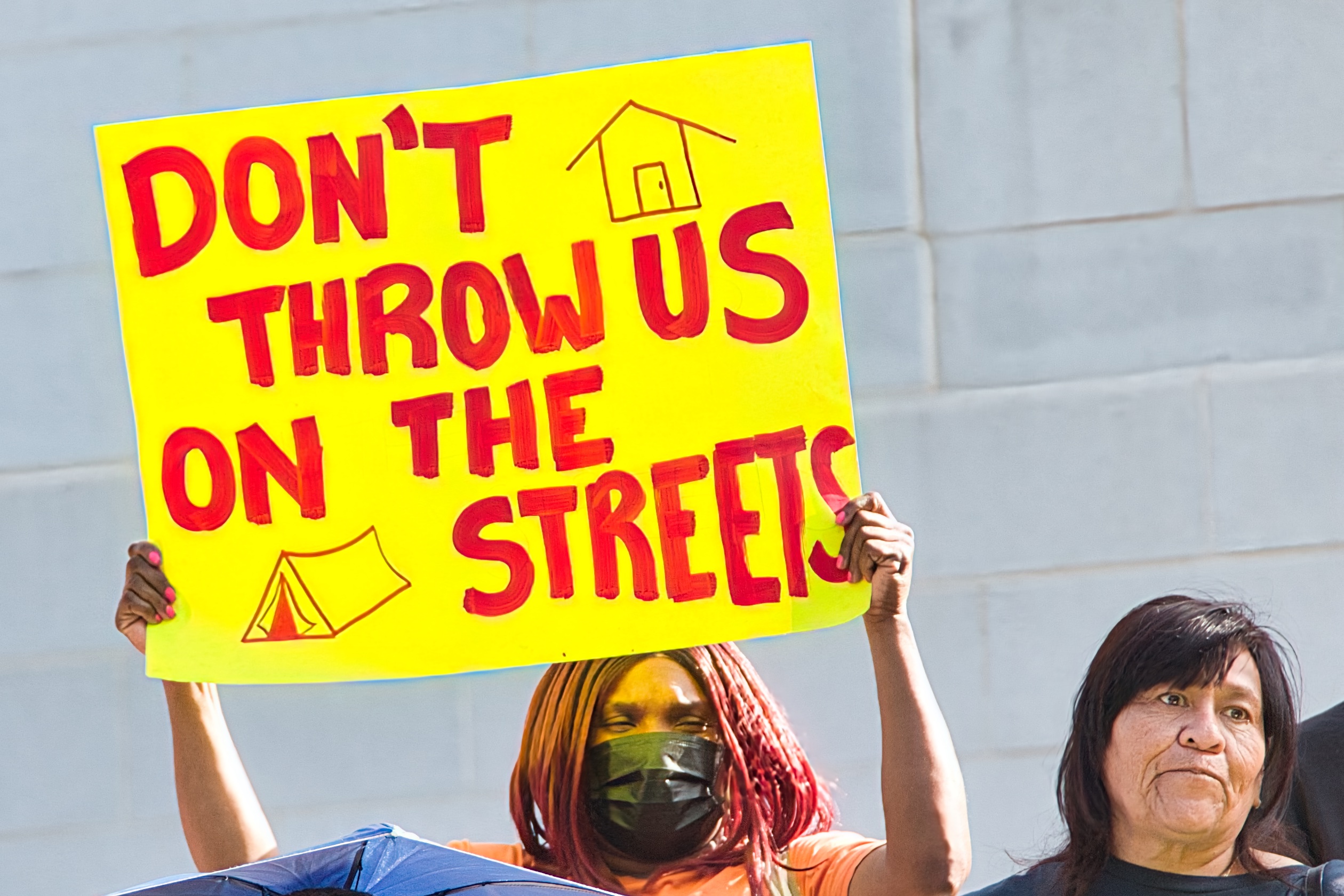
By Marisol Granillo Arce, M.S.W., M.P.H., A.S.W., social worker and SAJE member
September 20, 2024
**If you support a stronger Tenant Anti Harassment Ordinance for Los Angeles tenants, please submit a public comment to the City Council before 2 PM on Monday, September 23! You can find our toolkit for written public comment here.**
Los Angeles’ renters are in crisis. Since January, more than 30,000 evictions have been filed in Los Angeles County. Rents have skyrocketed, and the cost of housing is more than many households can reasonably afford. Many Angelenos are still carrying rent debt from the pandemic. And now the city is contending with an epidemic of landlord harassment, with more than 13,000 complaints filed with the Los Angeles Housing Department over the past three years.
When a landlord cannot legally evict a tenant, they may try and harass that tenant out. This might include posting illegal eviction notices, reducing or eliminating services like parking or laundry, neglecting repairs, verbal or physical assault, or nuisance construction intended to disturb peace, quiet, and safety. In 2021, Los Angeles passed the Tenant Anti-Harassment Ordinance to clamp down on landlord harassment, but the ordinance has so far been poorly enforced, with just two dozen cases referred to the City Attorney’s office for prosecution.
The Los Angeles City Council is now in the process of strengthening the ordinance with a slate of amendments that increase penalties and fines for landlords who violate the law. These amendments could do more to address the serious impact of landlord harassment on mental health, a consequence that is often lost in discussions about the impact of the housing crisis on Angelenos. In particular, council should include a provision that allows tenants who have been harassed to seek damages for emotional and mental distress.
As a public health professional, I have seen firsthand how landlord harassment leads to mental health issues that can leave lasting emotional damage. Harassment is traumatizing, debilitating, and deprives individuals and families of the basic human right of having a safe place to call home. Landlord harassment is particularly hard on children, who may experience permanent psychological dysregulation due to elevated stress levels. Expecting children to focus on school when they’re living with housing insecurity is a heavy burden that leaves long-term trauma, harms children’s health, and disrupts their development.
As a renter, I experienced firsthand how landlord harassment affects mental health. In August 2022, I came home to a three-day no-fault eviction notice posted on my front door. My landlord, who had just purchased the building, was claiming I violated my lease because I was using an area of the apartment as a second bedroom. But when I originally rented the unit in 2016, it was advertised as a two-bedroom unit, and the previous landlord had okayed this arrangement.
As I awaited a court date for the eviction hearing, my landlord harassed me. She berated me, failed to provide rent payment acknowledgements, ignored requests for repairs, blocked my parking space as I was dealing with a physical disability, and made me get rid of my bed so I was sleeping on the floor after just having had knee surgery. She also sent strangers to aggressively knock on my door late at night—this forced me to install security cameras, as I no longer felt safe in my home.
You would think that as a mental health provider, I would have responded calmly. However, the harassment put me in a state of hypervigilance that affected my sleep, disrupted my nervous system, and led to paranoia. I sought out mental health services to help me cope—I had these resources available to me because of my profession. But many tenants going through similar experiences must do so without help, and wait for months before they’re able to see a mental health provider. Mental health issues can be hard to diagnose, and treatment is often not billable under health insurance plans. And for households already struggling to pay rent, mental health care can be prohibitively expensive.
Landlord harassment is a health crisis as much as it is a housing crisis. This is why provisions for mental health should be part of a robust tenant protection policy. As the City Council moves to amend the Tenant Anti-Harassment Ordinance, they should include damages for emotional and mental distress. This will help strengthen deterrents for landlords who use harassment as an illegal eviction tactic to terrorize and force people to move out. More importantly, though, it will ensure tenants have access to the resources they need to help them cope, heal, and feel safe.

